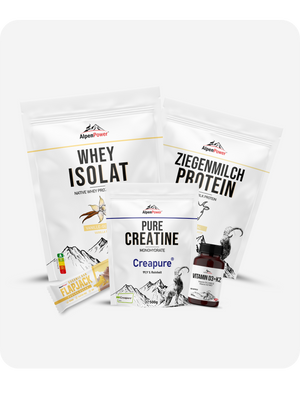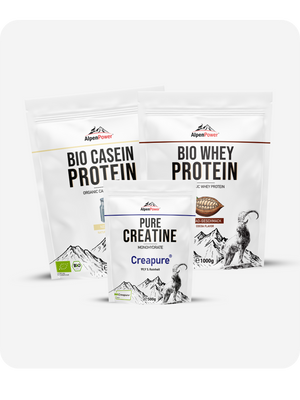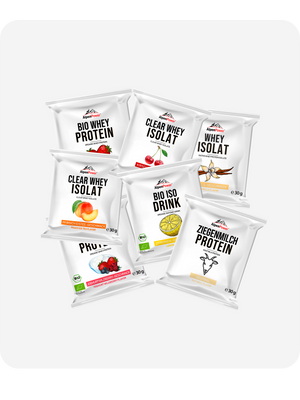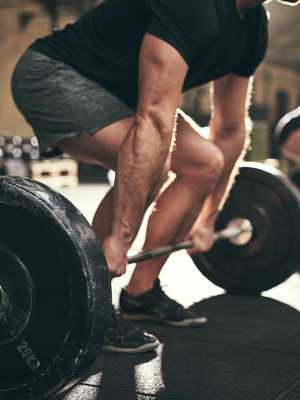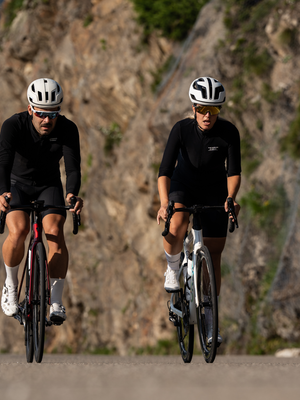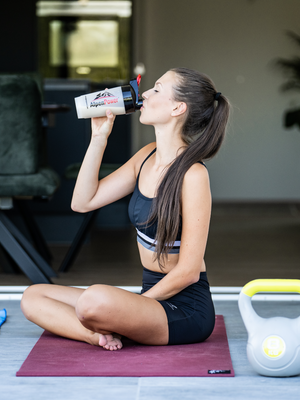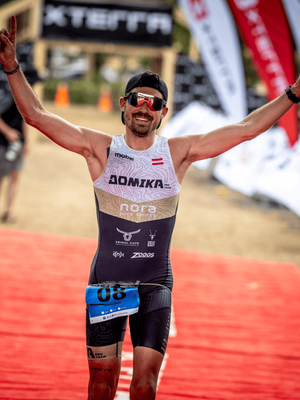The start of summer as a physiological challenge for the body
With the onset of the warm season, it is not only the external training conditions that change, but also the physiological demands on athletes' bodies. Rising temperatures lead to increased thermoregulatory stress, particularly through increased sweat production. This is an essential means of regulation for maintaining the body's core temperature, but is accompanied by a considerable loss of fluid and electrolytes. Inadequate compensation for this loss can lead to a significant impairment of physical performance and cognitive functions.

Fluid loss and its effects on performance
Even a moderate loss of fluid - defined as a reduction in body weight due to water loss of around 2 % - can have measurable physiological consequences. Studies show that at this dehydration threshold, aerobic endurance performance decreases, heart rate increases under stress and thermoregulatory efficiency is reduced. In addition, the ability to concentrate and reaction speed decrease, which can be particularly relevant to safety in technically demanding sports.

Water alone is not enough: the role of electrolytes
When sweating, the body not only loses water, but also essential minerals - the so-called electrolytes. These include sodium, potassium, magnesium and calcium in particular. These substances are crucial for maintaining cell function, neuromuscular communication and the intracellular and extracellular osmotic balance.
A lack of electrolytes can manifest itself in the form of:
-
Muscle cramps
-
neuromuscular fatigue
-
Circulatory dysregulation
-
Reduced regenerative capacity
can occur. The targeted intake of electrolytes is therefore of great importance not only during, but also before and after training.

Isotonic drinks - Physiologically optimized support
Isotonic drinks (iso drinks for short) offer an effective way of efficiently compensating for fluid and electrolyte losses. Isotonic means that the particle concentration (osmolality) of the liquid corresponds to that of blood plasma. This enables particularly rapid passage through the stomach and absorption in the small intestine.
A scientifically formulated iso drink ideally contains:
-
Sodium (approx. 400-700 mg/L): Regulates the water balance and promotes the absorption of glucose and water in the intestine.
-
Potassium (approx. 120-200 mg/L): Involved in maintaining membrane potential and muscle contraction.
-
Magnesium (approx. 50-150 mg/L): Important for the function of numerous enzymes in energy metabolism and for preventing muscular imbalances.
-
Carbohydrates (4-8%): Support the supply of energy during prolonged exercise, ideally in the form of readily available sugars such as glucose or maltodextrin.
Application recommendations for everyday sporting activities
The following intake strategy is recommended to optimize performance and regeneration:
-
Before training: 300-500 ml isotonic drink about 30 minutes before the start of exercise to preload fluids and electrolytes.
-
During training: During exercise >60 minutes, drink 100-150 ml every 15-20 minutes, even if you don't feel thirsty. The aim is to continuously compensate for the loss of fluids without straining the stomach.
- After training: Electrolytes support the restoration of homeostasis, promote muscle regeneration and prevent post-exertional symptoms such as cramps or exhaustion.

Quality and composition: what you should look out for
Not all isotonic drinks are created equal. Look out for:
-
natural ingredients without artificial additives,
-
balanced electrolyte composition,
-
pleasant osmolality for rapid absorption,
-
and an easy tolerance even under stress.
The AlpenPower Iso Drink was developed with these criteria in mind for use on hot training days - without artificial colors or flavors, but with natural ingredients and optimal bioavailability.
Conclusion: fluid and electrolyte management as a key component of summer training
Rising temperatures pose particular challenges for the body. Well thought-out fluid and electrolyte management is essential to keep performance, concentration and regeneration at a high level. The targeted use of isotonic drinks can prevent deficits and sustainably improve the quality of training. From a sports science perspective, the preventive intake of fluids and electrolytes is one of the most effective levers for maintaining performance under heat stress.
Author: Laura Bahmann
